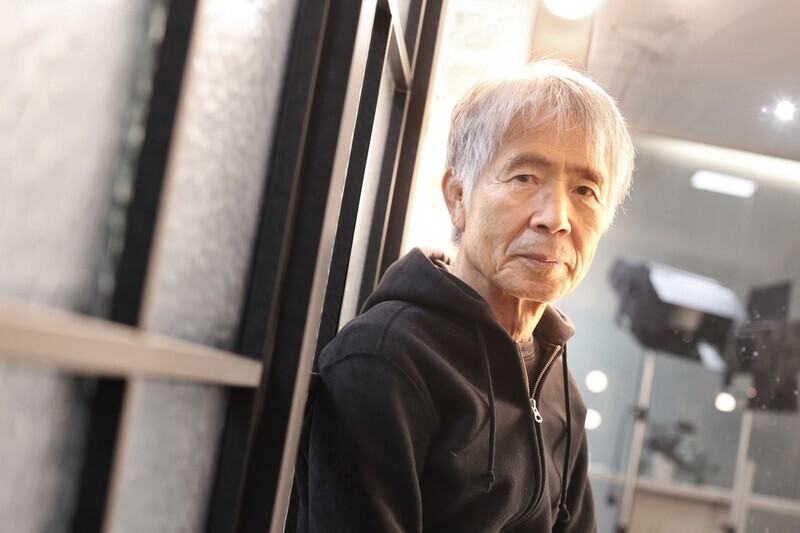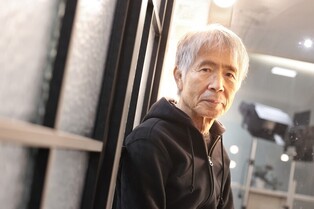(3rd LD) coronavirus-additional case
 |
| ▲ Medical workers warm their hands by a heater set up around a temporary coronavirus screening center in front of Seoul Station on Jan. 10, 2021, during a strong cold wave sweeping across South Korea. (Yonhap) |
 |
| ▲ A health official disinfects an underground shopping center at Gangnam Station in Seoul on Jan. 10, 2021, after it closed down the previous day following the confirmation of a coronavirus case, in this photo provided by the shopping center office. (PHOTO NOT FOR SALE) (Yonhap) |
 |
| ▲ This photo shows a street in Myeongdong, usually one of the busiest neighborhoods in Seoul, without pedestrian traffic on Jan. 10, 2021, amid a cold spell and the third wave of the coronavirus pandemic. (Yonhap) |
 |
| ▲ Quarantine officials help an elderly woman disembark from a bus as the authorities transfer people from elderly nursing homes who are uninfected with COVID-19 to a designated facility in the southwestern city of Gwangju, in this photo taken on Jan. 8, 2021. (Yonhap) |
(3rd LD) coronavirus-additional case
(3rd LD) New virus cases stay below 700 for 3rd day despite steady cluster infections
(ATTN: UPDATES with details from gov't coronavirus briefing; ADDS photo)
SEOUL, Jan. 10 (Yonhap) -- South Korea's new coronavirus cases remained at the 600 mark for the third consecutive day on Sunday as social distancing measures had a slight effect despite steady cluster infections.
The country added 665 more COVID-19 cases, including 631 local infections, raising the total caseload to 68,664, according to the Korea Disease Control and Prevention Agency (KDCA).
The figure was slightly up from a one-month low of 641 on Saturday, the fewest daily infections since Dec. 8, when the country added 594 additional cases. The daily figure reached 674 on Friday.
The country's daily virus figure stayed below 1,000 for the sixth consecutive day.
Health officials said the third wave of the outbreak "appears to have peaked" with the curve marking a downward trend. But they warned against feeling at ease, as infections from small and private group gatherings, which are hard to predict and trace, are continuing.
"We can only start easing the control measures carefully when we slow down the virus spread as much as possible until the 17th," Son Young-rae, a health ministry official, said in a regular COVID-19 briefing.
"I ask everyone to please cancel whatever meeting, appointment you have for this week and minimize contact with people," he added.
South Korea has been operating the so-called Level 2.5 social distancing scheme in the greater Seoul area, which is the second highest in the country's five-tier scheme, and Level 2 rules in other areas since Dec. 8. On Monday, the government extended the measures until Jan. 17.
Private gatherings of five or more people are banned across the nation during the extended period.
As daily confirmed cases have remained below the 1,000 mark since Tuesday, health officials believe the third wave of coronavirus infections is subsiding, helped by stringent distancing rules and preemptive testing. However, they are keeping a watchful eye on sporadic cluster outbreaks and a new virus variant that was first reported in Britain.
To curb cluster outbreaks from more virus-prone residential care facilities, such as nursing homes for elderly people or those for the disabled, the authorities will expand preemptive COVID-19 testing, the Central Disaster and Safety Countermeasure Headquarters said.
Anyone residing in or working at these facilities must make a report if they went somewhere or met people on the weekend or after hours and get tested for the virus.
Moreover, businesses like indoor gyms, cram schools and karaoke rooms will be allowed to conditionally reopen when the current Level 2.5 measures expire.
As for the new COVID-19 strain, South Korea has reported a total of 16 cases -- 15 from Britain and one from South Africa.
The country has banned flights from Britain since Dec. 23, with the ban extended until Jan. 21.
Prime Minister Chung Sye-kyun called for vigilance against possible local transmissions of the new variant.
"Our most urgent task is to block off the influx of the new COVID-19 strain into the country," he said during a regular government meeting to tackle the virus spread. "We hope health officials will thoroughly brace for the possibility of the new variant spreading in local communities."
The coronavirus cluster in an evangelical church in Sangju,270 kilometers southeast of Seoul, has grown to 505 cases nationwide.
Out of 2,837 people who have visited the church since late November, 154 tested positive for the virus as of Saturday. Some of the confirmed patients were found to have additionally spread the virus to 351 people by attending religious services and gatherings in other parts of the country.
The authorities expected the number of confirmed cases from the church to further rise as about 70 percent of the visitors to the church have yet to take tests for the virus.
Of the new 631 local infections reported Sunday, 179 were discovered in Seoul and 189 cases in Gyeonggi Province that surrounds the capital. Incheon, west of Seoul, reported 32 more cases. The three areas represent around half of the nation's population.
The number of imported cases came to 34, down from 45 the previous day. They included four from the United States and six from Indonesia.
South Korea added 25 more deaths, raising the total to 1,125. The number of patients with serious symptoms across the country reached 401, down from 409 on Saturday.
The total number of people released from quarantine after making full recoveries was up 1,085 from Saturday to reach 50,409 on Sunday.
(END)
(C) Yonhap News Agency. All Rights Reserved























![[2026 Outlook] BTS, BLACKPINK comebacks; UNESCO World Heritage session in Busan fuel K-culture momentum](/news/data/20251226/p1065576816972067_337_h.jpg)














